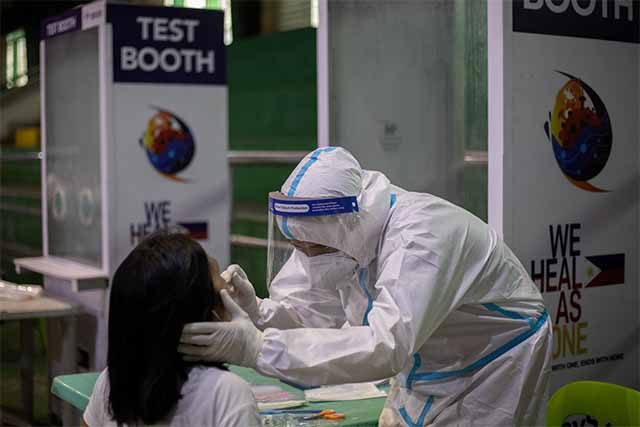
Calls to ramp up the country’s testing capacity resurfaced online amid reports that the health department has found eight active cases of the highly transmissible Delta variant of COVID-19 among Filipinos.
Health Undersecretary Maria Rosario Vergeire on Tuesday said that the department conducted retests on the patients that were previously tagged as recovered after completing their two-week isolation and testing negative for the virus.
“Most of them were not able to be tested after the 14th day,” she was quoted as saying in an interview on CNN Philippines.
“When we went back because we were able to determine they had the Delta, we retested again,” Vergeire added.
The active cases were part of the reported 11 Delta variant cases by the Department of Health last week.
One is in Manila, one is in Misamis Oriental, four are in Cagayan de Oro while two are returning overseas Filipinos.
Vergeire said that the eight individuals are not showing symptoms but will have to complete their 14-day quarantine period for monitoring.
“When we look closely, all these cases already have high CT values, meaning the viral load in their bodies is low,” she said in Filipino.
“Most likely, (they) are not that infectious anymore,” the health official added.
The CT value refers to the “cycle threshold,” or the number of cycles for an RT-PCR test to identify the SARS-CoV-2 virus.
Vergeire said that the eight individuals were not returned to their communities before being retagged as active cases from the variant.
She added that the DOH has already met with government agencies and local officials to ramp up contact tracing efforts.
The health official likewise said that they are already assuming a “local transmission” of the Delta variant.
Meanwhile, data analyst Edson Guido of ABS-CBN pointed out that the Delta variant infections “happened weeks ago.” He said that the focus should be on the current “possible Delta transmission.”
Following this report, some Filipinos renewed calls for the government to boost its testing capacity so that people will be immediately isolated from their communities.
“Ergo, we need to test more, pleaseeeeeeeeeeee!” a Twitter user said in response to Guido’s tweet.
“We need more testing, faster contact tracing,” another online user commented.
“We should be testing the people who live with, work with, ate with the COVID patients, Delta variant or otherwise. Some people who have the authority or the clout have selective hearing,” wrote a Twitter user working in the medical field.
Last week, Filipinos called for ramped-up contact tracing measures amid the confirmation of Delta variant cases in the country
READ: Better contact tracing measures called for amid new confirmed Delta variant cases
The government follows three main responses in terms of curbing COVID-19 transmission: Testing people who might be infected, tracing the patient’s close contacts and then treating those who are showing symptoms of the virus.
This is also called the “test, trace, treat” strategy.
Singapore, which has one of the fewest numbers of COVID-19 cases in Southeast Asia, also employs a similar-sounding initiative.
Its strategy is “test, trace, and vaccinate.”
The World Health Organization has repeatedly stressed since last year that mass testing remains one of the best ways to slow the advance of the COVID-19 pandemic.
“All countries should be able to test all suspected cases, they cannot fight this pandemic blindfolded,” WHO Director General Tedros Adhanom Ghebreyesus said last year.
The WHO chief said cases cannot be isolated without testing and that the chain of infection in a community will not be broken.









